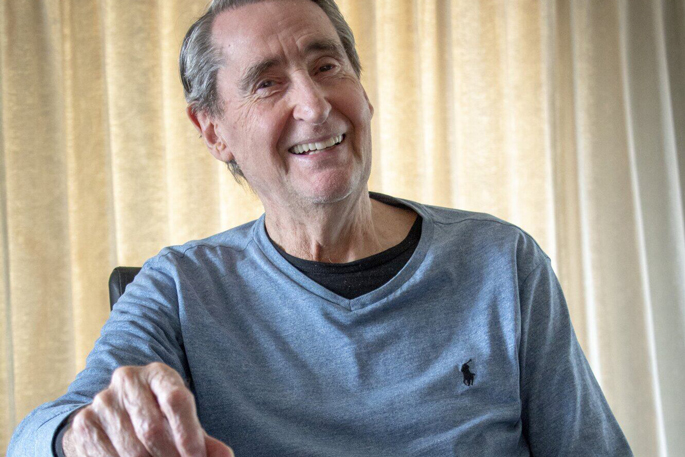Online tributes are flowing across the global computer science and research community following the death of Professor Barry Vercoe, the inventor of Csound.
A Tauranga resident, Vercoe, who died this month, aged 87, is internationally regarded as one of the founding figures of computer music.
A pioneering computer scientist, composer, and educator, Vercoe’s work revolutionised how the world creates, hears, and understands sound in the digital age.
As the inventor of Csound, a music programming language used globally by composers and researchers, his influence reached far beyond academia. The language he developed also formed the basis of SAOL, part of the MPEG-4 Structured Audio standard that powers audio technologies across the internet today.
Born in Wellington in 1937, Vercoe’s talents emerged early. He earned degrees in music (1959) and mathematics (1962) from the University of Auckland.
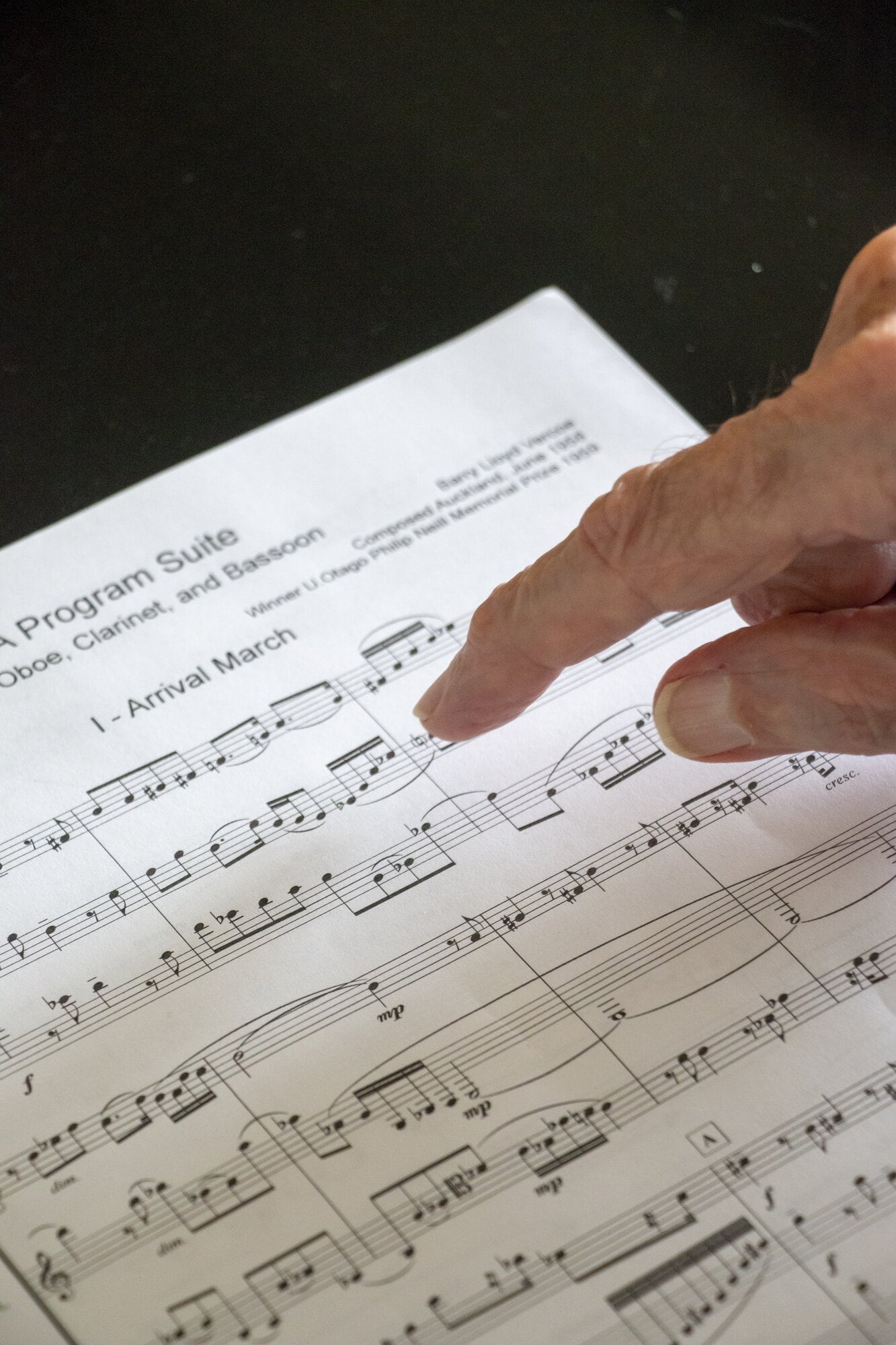
Barry Vercoe’s composition ‘A Program Suite for Oboe, Clarinet and Bassoon’ that he wrote as a 20-year-old. Photo / Bruce Barnard
While sitting in an Auckland University dorm room, 20-year-old Vercoe wrote a piece of music for some of his musical friends. The following year, in 1959, the composition A Program Suite for Oboe, Clarinet and Bassoon won the University of Otago’s Philip Neill Memorial Prize in Music – a work finally premiered nearly 60 years later in Tauranga in 2018.
Why has it never been performed publicly before then? It may be that Vercoe went off to do what appears to be, a very extended “OE”.
“I went to the USA in 1962,” said Vercoe during an interview with The Weekend Sun in 2018. “By 1971 I had become a professor at MIT. I then stayed there for 40 years. If you’re going to end up in a rut, just make sure it’s a good one.”
The good rut he ended up in was as a founding professor of MIT Media Lab in Boston, Massachusetts.
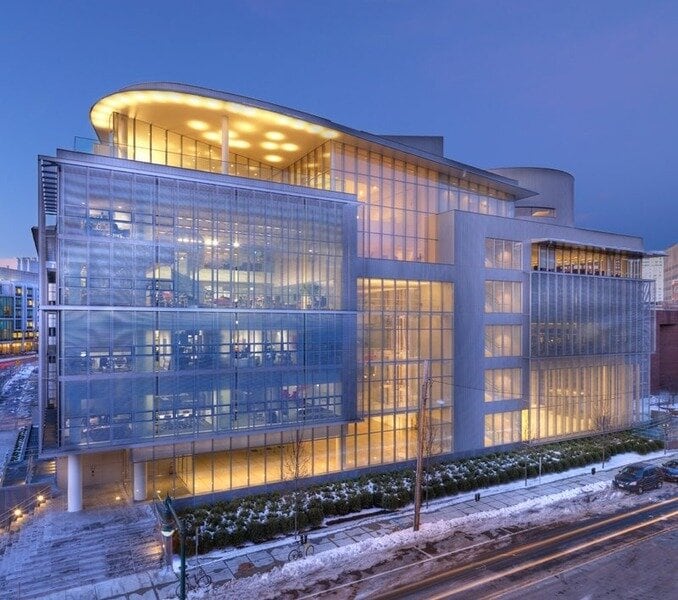
The MIT Media Lab in Boston, Massachusetts. Photo / Andy Ryan /MIT
He pioneered the composition of works combining computers and live instruments.
After moving to the United States, Vercoe completed a doctorate in music composition at the University of Michigan in 1968, studying with Ross Lee Finney. His musical career unfolded alongside a blossoming interest in computer science, sparked while working as a statistician and learning to program. From 1968 to 1971, during a postdoctoral fellowship at Princeton University, he conducted early research into digital audio processing, a field then in its infancy.
Vercoe held teaching posts at Oberlin Conservatory, served as the Contemporary Music Project’s composer-in-residence in Seattle, and was a visiting lecturer at Yale before joining the faculty of the Massachusetts Institute of Technology (MIT) in 1971. There, he became a transformative figure.
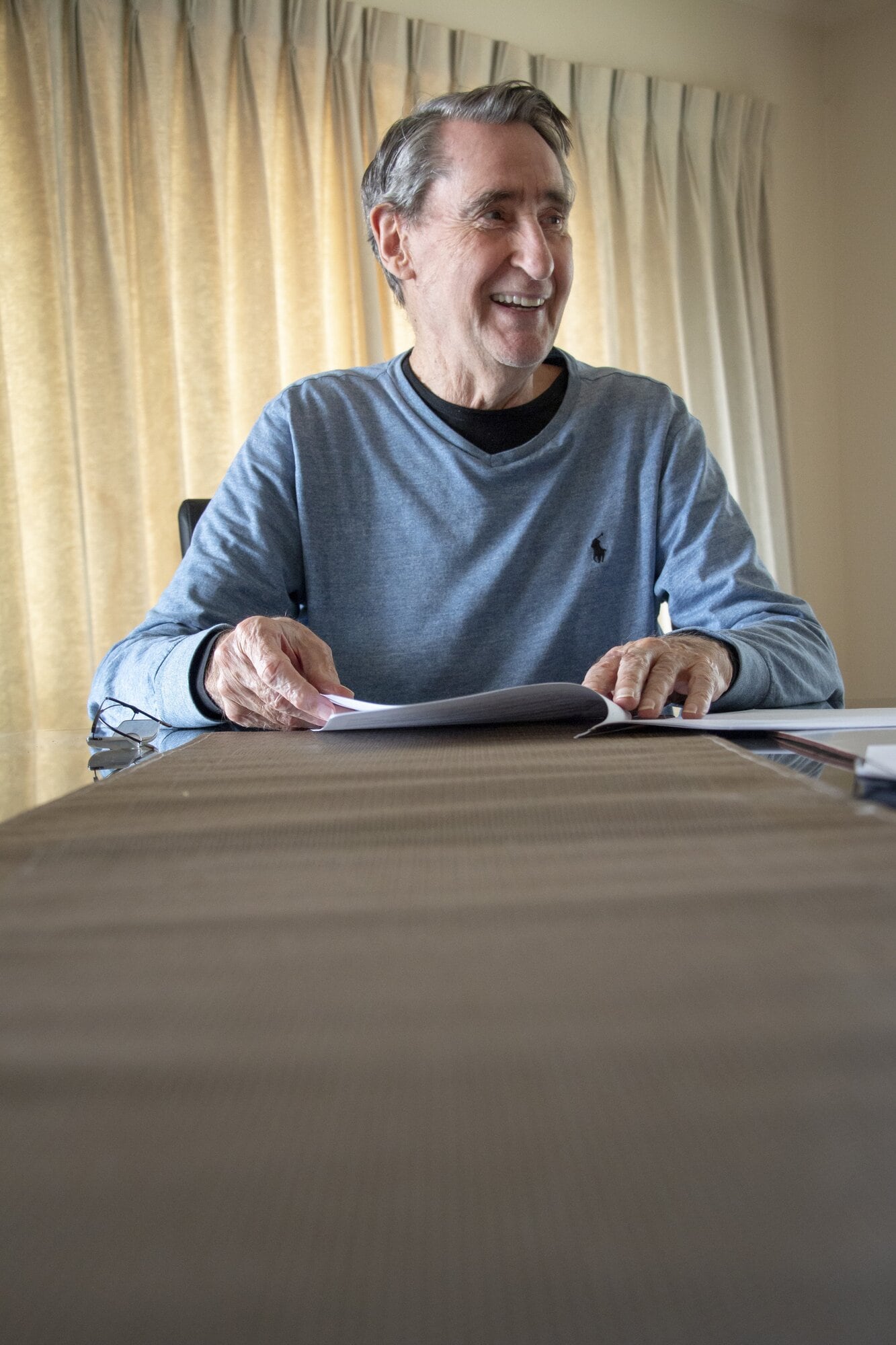
Barry Vercoe in 2018. Photo / Bruce Barnard
He founded the MIT computer facility for Experimental Music in 1973 — now commemorated on a plaque in the Kendall Square subway station — and was a founding professor of the MIT Media Lab in 1984, where he pursued research in Music Cognition and Machine Understanding. He remained at MIT for nearly four decades, ultimately serving as Founding Professor Emeritus MIT Media Lab, and Professor of Music and Media Arts and Sciences.
Vercoe was more than a researcher; he was a mentor, teacher, inventor and creative mind. He directed the Music, Mind and Machine group at the Media Lab, exploring machine listening and interactive musical performance. In Paris on a Guggenheim Fellowship in 1983, he created one of the first systems for real-time interactive performance — a “Synthetic Performer” that could listen and respond to live musicians.
He received numerous accolades, including the 1992 Computer World/Smithsonian Award in Media Arts and Entertainment and the 2004 Seamus Lifetime Achievement Award. His students included leading figures in the field, such as Susan Frykberg, Miller Puckette, and Paris Smaragdis.
Until his retirement, he was the head of the Media Lab’s Music, Mind and Machine group, which developed technology later incorporated into MPEG-4, the world’s first international standard for sound synthesis.
Exploring MIT’s website reveals fascinating topics Vercoeexplored and led innovation on, such as analysing killer whale sounds; developing intelligent music systems where live music events can happen through the internet when musicians are located remotely from each other; and developing software that enables musicians to synthesise and represent non-Western music in particular from Asia and the Middle-East.
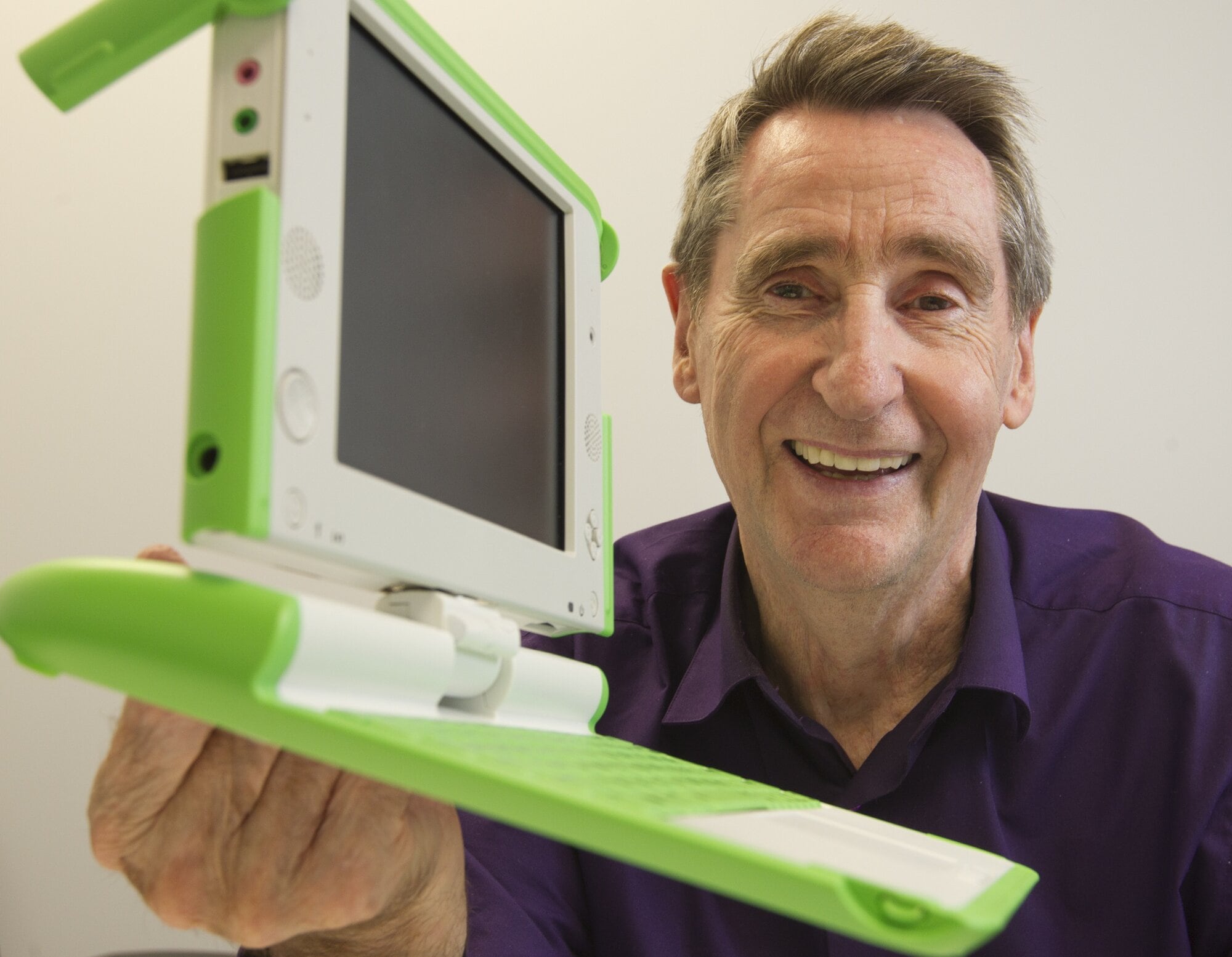
Professor Barry Vercoe, chief executive of One Laptop Per Child, pictured in Tauranga in 2013 with the XO laptop which he helped design. Professor Vercoe wanted to see the computers rolled out in New Zealand schools. Photo / Alan Gibson
Later in life, Vercoe turned his attention to global education, launching One Laptop per Child (OLPC) initiatives across Australia to get a laptop into the hands of every child in remote and mostly indigenous communities.
He co-founded One Education, an offshoot of OLPC, in Tauranga, where he lived in his final years after returning to spend time with a 98-year-old aunt who had helped raise him.
Busy inventing the future, Vercoe will be remembered for combining his two degrees in music and mathematics to help establish a new field in computer music.
An accomplished jazz pianist, he remained as curious and engaged in his 80s as he was as a young researcher. Having Vercoe back in Tauranga was like having a Beethoven, Bach or Stravinsky quietly living among us and he wrote a music column for SunLive for many years reviewing classical concert performances including the Tauranga Musica series. He was also an active member of Rotary Club of Tauranga Sunrise.
A celebration of Barry Vercoe’s life will be held in Tauranga when a suitable date is agreed.
Survived by his children, Andrea and Scott Vercoe, his partner Wendy Davies, and by the countless colleagues, students, and friends whose lives he enriched with his intellect, creativity, and quiet generosity, his legacy lives on – in every note crafted through digital synthesis and in every student inspired to blend mathematics and music.

